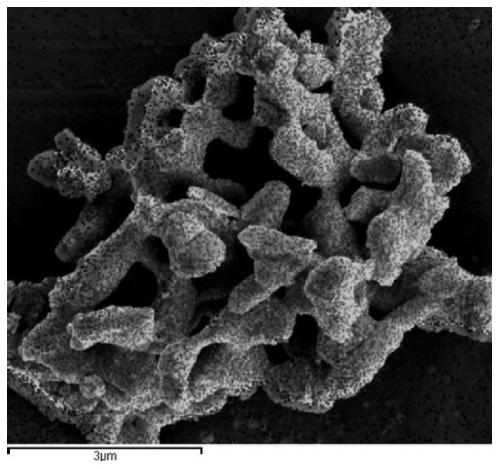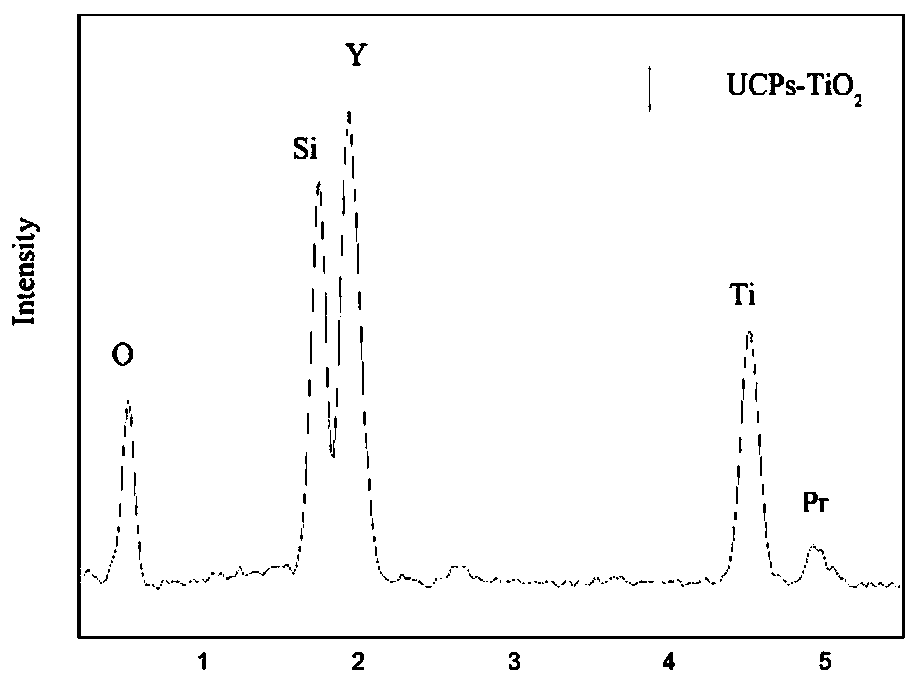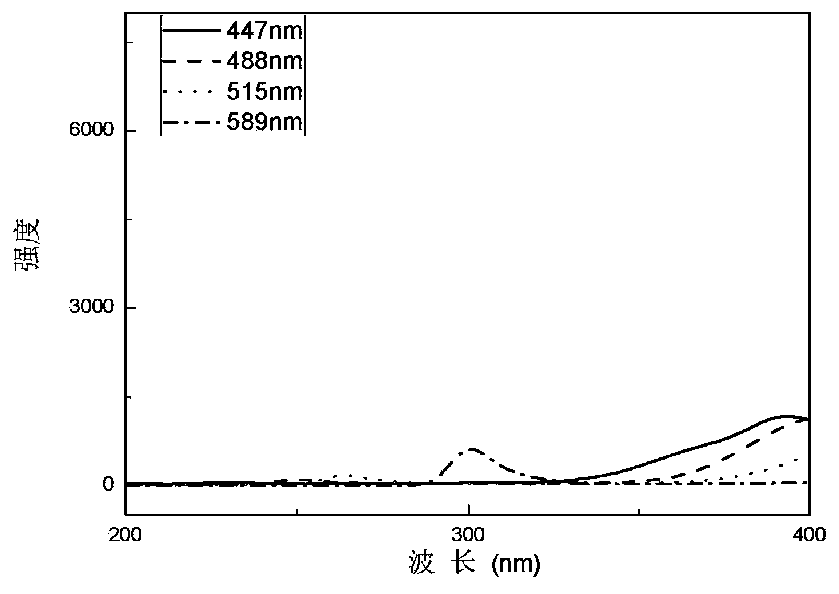Method for removing antibiotics in sewage through coupling of microorganisms and photocatalysis, and up-conversion/titanium dioxide composite material used therein
A technology of titanium dioxide and conversion materials, applied in the field of the present invention, can solve problems such as poor permeability and increased sewage treatment costs, and achieve the effects of improving removal efficiency, saving light source costs, and removing high-efficiency
- Summary
- Abstract
- Description
- Claims
- Application Information
AI Technical Summary
Problems solved by technology
Method used
Image
Examples
Embodiment 1
[0028] Example 1, a water treatment method for efficiently removing antibiotics in sewage by using microorganism-photocatalytic coupling.
[0029] (1) Preparation of up-conversion materials
[0030] PR 3+ and Li + Elements derived from Pr(NO 3 ) 3 ·6H 2 O and LiNO 3 ·6H 2 O. Yttrium nitrate was made from 5.3 g of yttrium oxide and nitric acid in a ratio of 1:1, while praseodymium and lithium were added as dopants (in the form of nitrate at a molar ratio of 1%) and subsequently added. The yttrium nitrate solution was then dried at a constant temperature of 104 °C to a constant weight, and then dissolved in 17.25 mL of alcohol and 5.4 mL of water, and then about 10 mL of tetraethoxysilane was added as a silicon source and a gelling agent and kept stirring until a Disperse the solution evenly, then heat it in a water bath environment at 70°C until a colloid is formed, then place it in a furnace at 104°C and burn it for about 17 hours, grind it into powder, heat it up to 1...
PUM
 Login to View More
Login to View More Abstract
Description
Claims
Application Information
 Login to View More
Login to View More - R&D
- Intellectual Property
- Life Sciences
- Materials
- Tech Scout
- Unparalleled Data Quality
- Higher Quality Content
- 60% Fewer Hallucinations
Browse by: Latest US Patents, China's latest patents, Technical Efficacy Thesaurus, Application Domain, Technology Topic, Popular Technical Reports.
© 2025 PatSnap. All rights reserved.Legal|Privacy policy|Modern Slavery Act Transparency Statement|Sitemap|About US| Contact US: help@patsnap.com



